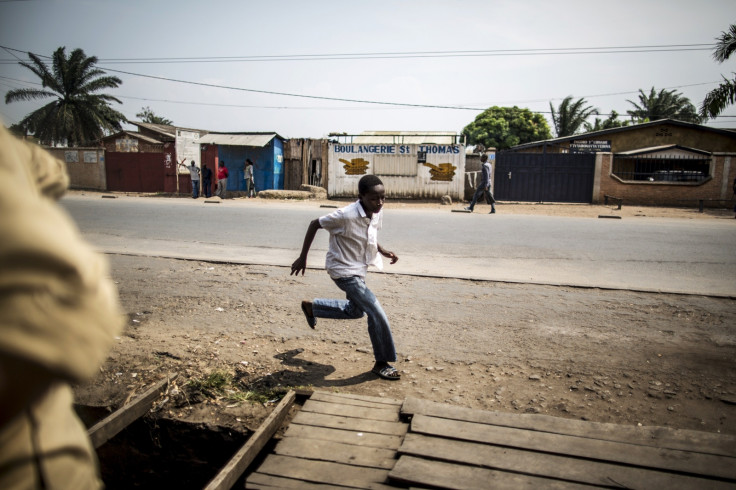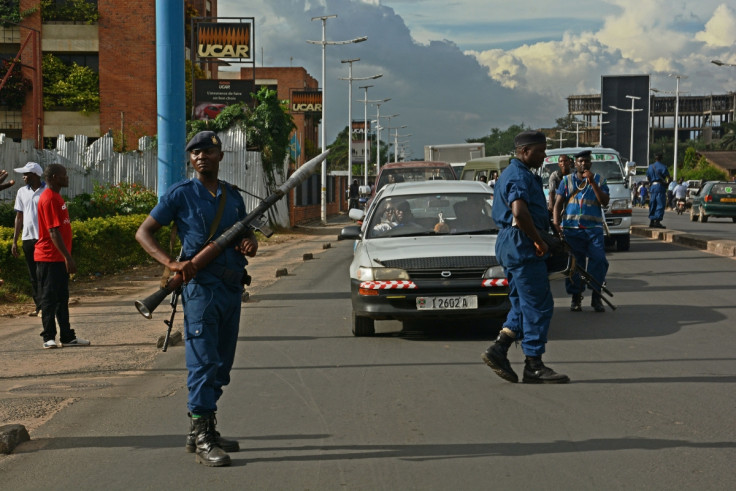Burundians in fear of genocidal war after state orders new ethnic-based census
Burundians fearing return to bloody past during which hundred of thousands were killed along ethnic lines.

People in Burundi have voiced their concerns after it was revealed that the Senate asked the government to carry out a census of every civil servant in the country based on their ethnicity and region of origin, which many say reminds them of the run-up to the Rwandan genocide.
There have been growing fears that the nation could be heading for a Rwandan-style genocide after a number of calls for ethnic-based massacres in Burundi emerged on social media over recent months – orders the embattled authorities and the opposition have condemned.
The majority in Burundi say they want peace. The country's past is scarred by the Hutu-Tutsi ethnic conflict which resulted in the slaughter of between 80,000 and 200,000 Hutus by the Tutsi army in 1972, and the civil war from 1993 to 2005 which left 300,000 people dead following Tutsi massacres by the majority-Hutu populace.
It has now emerged that Senate President Révérien Ndikuriyo ordered the government to carry out a general census of those working directly or indirectly for the state – more than 100,000 people – based on their ethnicity and region of origin.
Many Burundians have expressed fears over the scale and the secretive nature of the census, which was not publicly announced. According to the Ministry of Civil Service, the census targets every employee on the state payroll – by far the largest employer in Burundi amid a private sector still in its infancy.
Directors-general and heads of department have a month to submit their lists to the Ministry of Civil Service, which will in turn hand it to the Senate.
'An illegal ethnic census with a tendency towards genocide'?
A few years ago, the government failed to organised a similar survey, at least officially, after the outcry of trade unions and representatives of civil society. While the current census was organised with the greatest discretion, it has aroused much controversy.
But, as Burundi's 19-month crisis deepens and critical voices have become increasingly muzzled by a widespread crackdown by the authorities, no one has dared to express themselves publicly and Burundians have turned to social media to voice their fears.

Fears of divisions along ethnic lines were highlighted by social media user Karakura, who said: "Burundi: an illegal ethnic census with a tendency towards genocide". In another Tweet, user Centaure described the census as "extremely worrisome". User Ruth Nirere wrote: "Burundi's ethnic census of civil servants is worrying. [It is] Not stipulated in the Constitution".
In December 2015, IBTimes UK reported teachers in Burundi were concerned after the Ministry of Education asked them to reveal their ethnic group in a similar survey.
Government: Census operation is 'common'
The government has tried to reassure Burundians by referring to the 2000 Arusha Accords for Burundi, the basis for the African nation's constitution, which imposed equal ethnic quota rules for minority protection and power sharing. These rules provide a more balanced representation of ethnic groups within the country's army, police and Parliament, whereby 60% of employees are from the Hutu majority, and 40% are Tutsi.
"The Senate is playing its role effectively because it simply wants to check if the balances provided by the constitution are respected, as stipulated by the law," first Vice-President Gaston Sindimwo was quoted as saying by RFI.
"When the constitution is based on ethnic quotas, the only way to guarantee these quotas is the census. Or simply reforming it," Sagamba Burundi, who is believed to support the controversial government, said on Twitter.
Sindimwo, who was sworn in in August 2015 following Burundi's controversial elections, condemned the opposition's "instrumentation" of the census operation, which he described as common. He added the census would help restore an imbalance in the way ethnic groups are currently represented in the army and police.
While the integration of both factions was seen as a great achievement of the 2000 Arusha peace agreement, the political crisis that has rocked the central African nation for more than a year now has laid bare deep internal divisions among the nation's armed forces (FDN).
In light of reports of politically or ethnically motivated violence, military officers suspected of being close to the opposition and young Tutsi officers have increasingly been defecting the forces. In August, a report submitted to the United Nations (UN) Committee Against Torture (CAT) corroborated earlier UN findings of enforced disappearances among ex-officers of the defunct predominantly Tutsi ex-Armed forces of Burundi (ex-FAB), who have allegedly been killed because of their Tutsi ethnicity.
Trade unionists have denounced the fact that the new census also targets petty officials and mere employees of public companies - who are not subject to the quotas provided for by the constitution.
© Copyright IBTimes 2025. All rights reserved.






















